Shikhakrati Negi and Swetha Kanthi participated in the Second CII One Health Lecture Series, ‘Preparing Future Leaders for One Health Challenges’ held at GB Pant University of Agriculture and Technology (GBPUAT), Pantnagar. They share their feedback from the event here.
CONTEXT
When Rudolf Virchow, the Father of Pathology, said, “Between animal and human medicine there are no dividing lines – nor should there be. The object is different, but the experience obtained constitutes the basis of all medicine”, little did anyone anticipate that this notion would eventually evolve into the profound concept of ‘One Earth, One Health’, encompassing the interconnectedness of all humans, animals, and the environment.
This idea led to the initiation of a common platform by the Department of Animal Husbandry & Dairying (DAHD), Ministry of Fisheries, Animal Husbandry and Dairying, Government of India, for addressing current challenges through the one health approach. For this unique cause, The Bill and Melinda Gates Foundation along with its implementation partner, the Confederation of Indian Industry (CII), has collaborated with DAHD to implement the one health framework in two Indian States – Karnataka and Uttarakhand – as a pilot project. As a part of this initiative, a lecture series on ‘One Health’ (the second of its kind) was organized at the College of Veterinary and Animal Sciences, GBPUAT, Pantnagar. The event had a turnout of over 250 participants which included dignitaries from the Animal Husbandry Department, Uttarakhand, experts from the domains of animal and human health, and environmental welfare, officials from CII and the One Health India project, as well as students of GBPUAT. The research scholars (Division of Extension Education & Veterinary Public Health Division) of ICAR-Indian Veterinary Research Institute-Izatnagar, also got an opportunity to participate in this enlightening one-day visit to the GBPUAT campus.
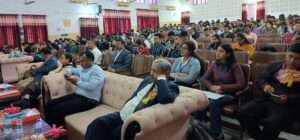
INAUGURAL ADDRESS
The event started off with Dr Manish Rai, State Lead, introducing the One Health Initiative in India. He stated that the goal of this initiative, piloted in Uttarakhand and Karnataka in April 2022, is to create a national roadmap for One Health, based on the project’s findings. This involved setting up a One Health Support Unit (OHSU) within the Department of Animal Husbandry and Dairying, with experts from various sectors to provide both technical and administrative support to the project. We were made aware of the key interventions that the OHSU is undertaking in the state including institutionalization, strengthening of diagnostic capacities, digital disease reporting and response system, customized training on epidemiology, communication strategies, and strengthening of biosafety and biosecurity. The main idea here is that working together across different fields and disciplines is crucial for tackling zoonotic diseases. We need to better understand how these diseases spread between animals, humans, and wildlife, and raise awareness about these connections, which can then help in developing robust strategies to handle disease outbreaks effectively. Presently, the diseases under focus include Foot and Mouth Disease, Scrub Typhus, Glanders, Tuberculosis, and X Disease (disease of unknown origin).
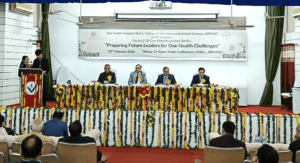 Dignitaries from the Uttarakhand Animal Husbandry Department and Experts from CII-One Health Support Unit and GBPUAT at the inaugural session
Dignitaries from the Uttarakhand Animal Husbandry Department and Experts from CII-One Health Support Unit and GBPUAT at the inaugural session
After that, there was a session with Dr Neeraj Singhal, Director of Animal Husbandry, Uttarakhand, who emphasized the importance of animal healthcare for public health. He talked about how crucial it is to keep a close eye on animal health from the perspective of One Health.
Next, Dr Kiran P Raverkar, Registrar of GBPUAT, Pantnagar (Uttarakhand), and Acting Vice-Chancellor, highlighted the need for more collaborative programs at the institutional level.
Finally, Dr AK Upadhyay, the organizing secretary, spoke about the efforts made by the institute in putting together the event. He introduced the speakers and gave a brief overview of the program schedule.
Following the inaugural session, the program featured a series of expert lectures covering a wide range of topics such as
- Pharmacological approaches to combat antimicrobial resistance;
- Environmental surveillance;
- Communication strategies in One Health initiatives;
- The landscape of zoonotic diseases in Uttarakhand; and
- The integration of bio-waste management with the One Health concept.
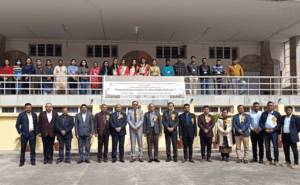 Dignitaries and Speakers at the One Health Lecture Series event along with the organizers from CII-One Health Support Unit and GBPUAT
Dignitaries and Speakers at the One Health Lecture Series event along with the organizers from CII-One Health Support Unit and GBPUAT
SESSION ON ‘PHARMACOLOGICAL PERSPECTIVES ON ONE HEALTH’
This session – offered by Dr Satya Pal Singh, GBPUAT – stressed the significance of antimicrobial resistance (AMR) and ways of tackling it. Antimicrobials are widely used in animals for different reasons such as treatment, prevention, and promoting growth. Additionally, the session talked about how some antimicrobials used in human and animal healthcare are also used in treating plants. This is important because antimicrobial resistance (AMR) can spread easily across ecosystems and populations. For example, soil can harbor resistant zoonotic bacteria that can infect plants and agricultural products. In conclusion, the discussion drew attention to finding solutions to combat antimicrobial resistance (AMR) which is caused by several factors such as overuse and inappropriate use of antimicrobials, lack of access to clean water and sanitation, insufficient infection control measures, limited availability of medicines and vaccines, low awareness, and regulatory inconsistencies.
Key Takeaways
- The way to tackle antimicrobial resistance (AMR) lies in first and foremost acknowledging the threat it poses and then understanding the best antibiotic usage practices. The role of extension activities becomes crucial here.
- Sharing personal experiences with antibiotic resistance cases at the field level and fostering two-way communication between research and implementing agencies can be beneficial.
SESSION ON ‘ENVIRONMENTAL SURVEILLANCE’
In this session Dr Harmanmeet Kaur, ICMR, emphasized the importance of environmental surveillance as a primary approach for monitoring human-adjacent environments. Surveillance targeting both known and undiscovered infectious diseases can complement classical clinical diagnostics. A key part of One Health is studying viruses in water bodies, which helps pinpoint sources of pollution, for instance untreated sewage. What’s fascinating is that monitoring wastewater was a crucial method for tracking the spread of SARS-CoV-2. The session wrapped up by emphasizing how looking at environmental surveillance through the lens of One Health – using tests, insights, and understanding of viruses affecting humans, plants, and animals – can give us powerful tools to fight emerging diseases and thus reduce the risk of outbreaks.
Key Takeaways
- The surveillance methodologies applied presently are complex and sophisticated and need expertise, so when these methods/tools get easier and integrated with regular reporting systems a strong surveillance system will be enabled.
- A focused approach/study on unorganized slaughterhouse management, effluent treatment, and disposal methods, which are largely ignored, may need to be considered under One Health surveillance.
SESSION ON ‘EFFECTIVE COMMUNICATION STRATEGIES IN ONE HEALTH’
Dr Mahesh Chander, ICAR-IVRI, conducted the next session wherein he focused on the vital, albeit often overlooked, aspect of communication and coordination.
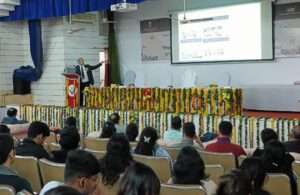 Dr Mahesh Chander speaking at the session
Dr Mahesh Chander speaking at the session
Presently, there is a worldwide consensus on the necessity for increased intersectoral and multidisciplinary collaboration to tackle the Emerging Infectious Diseases (EIDs) that affect both humans and animals. When human health and veterinary disciplines operate independently, their failure to communicate undermines the effectiveness of such collaborative initiatives. Building lasting cooperation starts with good communication, spreading awareness, and getting all stakeholders involved through training, mass media, and social media platforms. Various communication strategies personally used by the speaker were highlighted that could potentially benefit the One Health campaign. These include getting the message out through mass media such as TV, radio, and newspapers in local languages, as well as using community-based methods like theater, community radio, and discussion groups. Use of mid-media platforms such as text messages, and social media sites Facebook, Twitter, Instagram, YouTube, WhatsApp, blogs, and more was also discussed. The speaker emphasized students’ role in spreading the word and getting the message out to as many people as possible.
Key Takeaways
- To get different sectors to work together smoothly, it’s crucial for them to communicate effectively with each other.
- Young researchers should explore various resources and come up with ways to communicate the concepts.
- Concept and media literacy along with good intercultural communication skills are essential for good coordination and effective implementation of programs like this one.
SESSION ON ‘ZOONOTIC DISEASE LANDSCAPE IN UTTARAKHAND: A COMPREHENSIVE ANALYSIS AND MITIGATION STRATEGIES’
Dr Yogesh Bahurupi, AIIMS Rishikesh, discussed at length the connections between humans, animals, and the transmission of diseases that can affect community health. His elaborate research presentation included detailed current data on diseases of zoonotic significance in Uttarakhand, and projected estimates to highlight the probable future risks to communities. The latest data on zoonotic diseases such as Plague, Nipah virus outbreaks, Ebola hemorrhagic fever, Zika virus, Scrub typhus, Rabies, Corona, Brucella, etc., was presented.
The speaker gave a road map with AIIMS Rishikesh initiatives to address this issue and the One Health approach to mitigate the spread of zoonotic diseases in Uttarakhand under the pilot project. The emphasis was on the importance of building a robust laboratory network for early disease detection and working closely with local communities such as the Vangujjar. Initiatives such as organizing medical camps focused on One Health were also discussed.
Key Takeaways
- The vision requires a strong commitment and collaboration among One Health professionals. The key element is collaborative synergy among different disciplines that is strengthened by sharing interdisciplinary information. It’s about putting professional interests first, bridging any personal gaps between disciplines, and making sure information is reported and used effectively for surveillance.
- To really make progress, the regional and national data need to be integrated. This will help us evaluate and boost the global surveillance systems already in place by organizations such as the World Health Organization (WHO), Food and Agriculture Organization (FAO), and World Organization for Animal Health (WOAH).
- Artificial Intelligence and Big Data analytics offer promising opportunities for enhanced and efficient One Health management. They can help detect disease outbreaks early on, personalize treatments, keep an eye on environmental factors affecting health, and give healthcare providers and policymakers the support they need to make decisions.
SESSION ON ‘INTEGRATING ONE HEALTH PRINCIPLES IN BIO-WASTE MANAGEMENT’
Dr Vipin Kumar Verma, Jhpiego, opened up the session with a case study of Brucellosis in a person working in a sewage treatment plant, who was infected through an accidental prick with an infected needle while handling contaminated waste. Starting with a quick overview of the Bio-waste Management Rules 2016 and the strict protocols in place at medical and veterinary hospitals, the discussion progressed to the risks posed by improper sorting of bio-waste, plastic, and cytotoxic materials. The discussion highlighted effective waste management methods such as the 3Rs (Reduce, Reuse, and Recycle), legislative enforcement, and institutional safety measures. The speaker also discussed how important it is to check bio-waste management at individual household levels by creating awareness among the public.
Looking towards the future, the session envisioned advanced devices capable of identifying bio-waste presence at various stages of waste management, including collection, segregation, transportation, treatment, and disposal.
Key Takeaways
- Bio-waste management happens to be a nonlinear process as there are no uniform widely accepted methods; variations are based on location, socioeconomics, laws, regulations, demographic aspects, etc. To arrive at one model that fits all is challenging.
- The possibility of innovations and inventions to identify bio-waste and recycling are the need of the hour. Creating AI models that use language syntax to access local sewage load data and workforce distribution, based on analyzed data, will help manage resources more effectively.
- Waste not, Want not. Rational utilization of bio-waste at the place of origin can be an effective solution to minimizing overall waste
OUR IMPRESSIONS
After attending this day-long lecture series, we understood that
- Academic institutions have a pivotal role to play in grooming scholars to become future leaders who can go far in establishing and sustaining a resilient One Health Framework. This would require inculcating a solid understanding of concepts such as disease prevention, pandemic preparedness, and collaborative responses.
- Anti-Microbial Resistance is a real threat which needs attention from both research and extension systems.
- Environmental Surveillance methodologies for monitoring zoonotic diseases are expensive and complex, so we need more equitable and simple solutions.
- Extension and Advisory Services should be capacitated to perform One Health programs.
- More transdisciplinary works are important; the professionals of human health, animal health and plant health should come together for this cause.
- Bio-waste management is another area which should be focused on to achieve this broader objective of One Health.
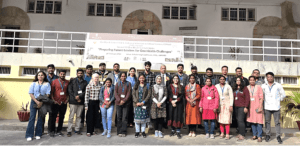 IVRI students participating at the One Health lecture series at GBPUAT
IVRI students participating at the One Health lecture series at GBPUAT
ACKNOWLEDGEMENTS
We are grateful to the Indian Veterinary Research Institute for their transportation support, and to GBPUAT, Pantnagar, for their warm welcome and the opportunity they provided. We extend special thanks to Dr. Mahesh Chander, Principal Scientist at ICAR-IVRI, for his assistance in enrolling us, the IVRI students, for the event and managing the administrative procedures.
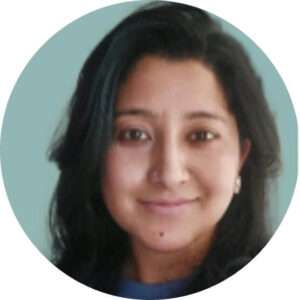 Shikhakrati Negi, PhD Scholar at the Division of Extension Education-ICAR-IVRI-Izatnagar-243122, UP, India. (Email –Shikhakrati_negi@ymail.com)
Shikhakrati Negi, PhD Scholar at the Division of Extension Education-ICAR-IVRI-Izatnagar-243122, UP, India. (Email –Shikhakrati_negi@ymail.com)
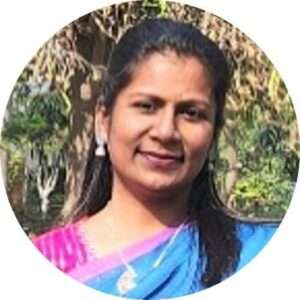 Swetha Kanthi, PhD Scholar at the Division of Extension Education-ICAR-IVRI-Izatnagar-243122, UP, India. (Email- s.shwethakanthi@gmail.com)
Swetha Kanthi, PhD Scholar at the Division of Extension Education-ICAR-IVRI-Izatnagar-243122, UP, India. (Email- s.shwethakanthi@gmail.com)

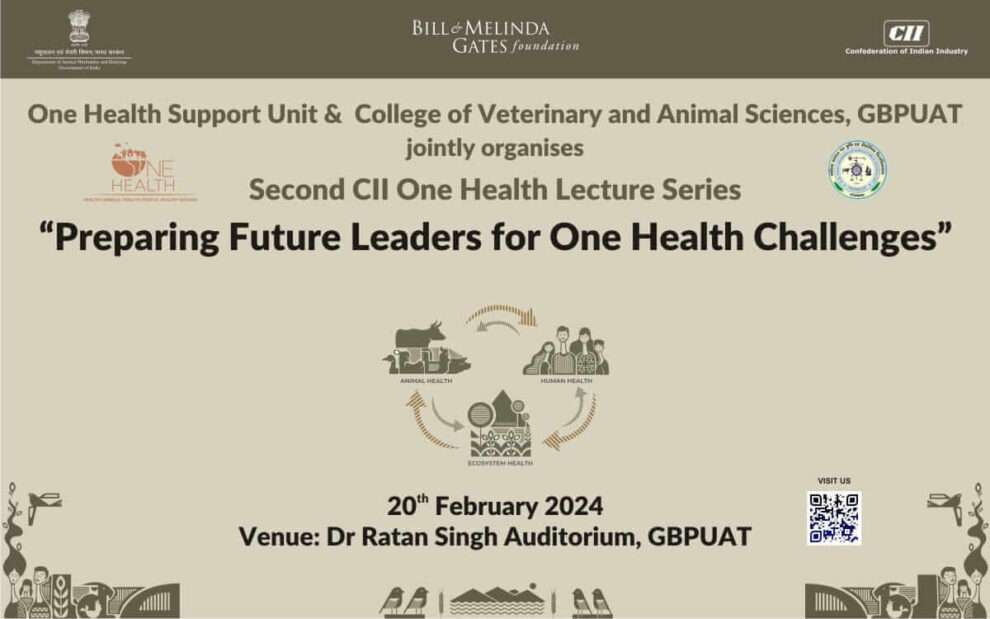

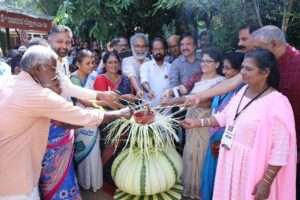

Add Comment